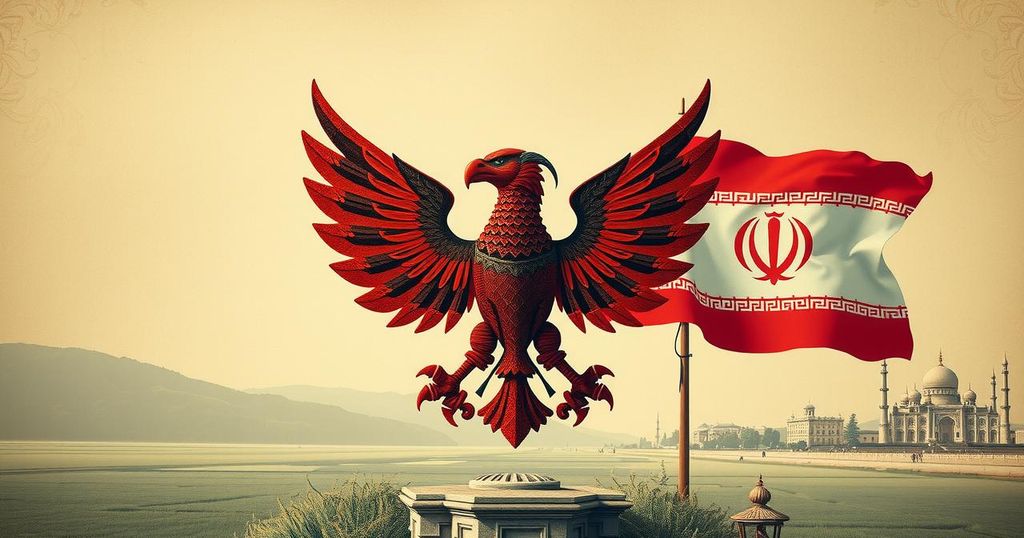World news
ALEXANDER SHCHERBAK, AP, ASHGABAT, ASIA, BLACK SEA, BRITAIN, CASPIAN, CAUCASUS, DONALD TRUMP, EMPIRE, EUROPE, EUROPE/ASIA, INTERNATIONAL RELATIONS, IRAN, IRANIAN REVOLUTIONARY GUARD, KERMANSHAH, KREMLIN, MEHR, MIDDLE EAST, MINISTRY OF DEFENSE, MOSCOW, PUTIN, RASHT, RUSSIA, RUSSIAN EMPIRE, SANCTIONS, SOCHI, SOVIET UNION, SP, SPUTNIK, TASNIM NEWS AGENCY, TEHRAN, TURKMENISTAN, U. S, UKRAINE, VLADIMIR PUTIN, WAR
Ethan Kim
0 Comments
The Complex Dynamics of Russia-Iran Relations: Historic Antagonism and Modern Alliance
Despite a newly forged strategic alliance, Russia and Iran’s relationship is deeply rooted in a centuries-old history of conflict and mistrust. Historically rivals, they have worked together on military and nuclear projects in recent years while facing challenges from the West. However, the long-standing suspicions stemming from their past complicate their alliance as both navigate geopolitical pressures from global adversaries.
Russia and Iran share a complex history, marked by periods of conflict and distrust. Despite their contemporary alliance, which escalated after the fall of the Soviet Union, their past wars and military occupations linger in the collective memory of both nations. Presently, the two countries have forged a comprehensive strategic partnership, bolstered by mutual interests and geopolitical considerations, particularly in response to challenges from the West.
Historically, Russia and Iran were adversaries, engaging in several wars during the 18th and 19th centuries, which allowed Russia to annex territories that were under Persian control. The relationship soured further in the early 20th century, particularly following the 1917 Bolshevik Revolution. During World War II, joint invasions by the Soviet Union and Britain heightened Iranian resentment, leading to long-term apprehensions. However, warming ties emerged post-1991, with Russia emerging as a crucial ally for Iran, especially in military and nuclear cooperation.
In recent years, cooperation intensified, particularly in Syria, where both nations have contributed to supporting Bashar Assad’s regime. As Russia focused its military resources on Syria and subsequently faced challenges in Ukraine, Iran’s regional actions, notably its responses to Israel, contributed to their alliance’s strain. Notably, many Western observers allege that Russia and Iran have engaged in arms agreements, including drone transactions.
Now, under the framework of a newly signed treaty, the crypto-strategic partnership covers various cooperative areas, including industries, military support, and cultural exchange, although skepticism persists about the sincerity of these developments. Iranian officials express optimism about the treaty’s comprehensive nature, although some factions within Iran, particularly the Revolutionary Guard, harbor distrust towards Russia’s more extensive geopolitical strategy.
Kremlin spokesperson Dmitry Peskov insists the treaty was planned in advance ahead of the new U.S. administration led by President-elect Donald Trump, who has threatened to impose stricter sanctions on Iran as part of his maximum pressure campaign. Thus, while both nations seek to enhance their bilateral relations, their historical grievances continue to impede a complete reconciliation.
In conclusion, while Russia and Iran have cultivated a partnership through shared interests, their complicated historical backdrop complicates their relationship. The ongoing geopolitical landscape, particularly concerning Western sanctions and military engagements in the Middle East, contributes to a cautious alliance marked by mutual dependency yet fraught with mistrust. As both nations navigate these turbulent waters, the effectiveness of their partnership remains uncertain amid a shifting global dialogue.
The relationship between Russia and Iran has evolved significantly over the centuries, moving from hostilities to face difficult alignments, especially in light of modern global politics. Relations soured as Russia historically occupied Iranian territories, causing lasting resentment. Yet, post-Soviet Union dynamics have dramatically influenced diplomatic strategies, with both countries increasingly cooperating on economic, military, and nuclear projects. Present geopolitical tensions, especially with the U.S., have further solidified their partnership, though remnants of skepticism from the past still linger.
In summary, while recent efforts have resulted in a strengthened strategic partnership between Russia and Iran, their historical antagonisms pose challenges to fully trusting one another. The geopolitical pressures they face, particularly from the United States and Israel, compel them to navigate their partnership cautiously. The effectiveness and longevity of this alliance will ultimately depend on their ability to confront shared challenges while addressing the historical grievances that linger in their complex relationship.
Original Source: apnews.com




Post Comment